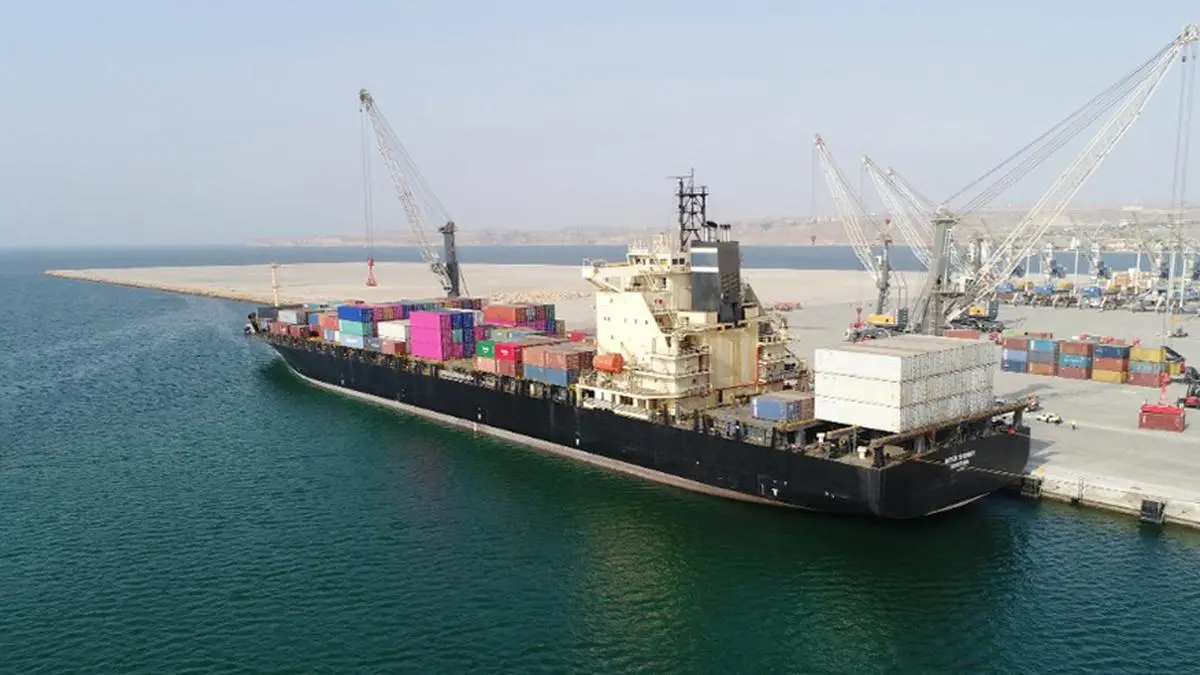By Amiti Senabhishek Law
Copyright thehindubusinessline

India is examining the implications of the US decision to withdraw the exemption given to Iran applying to investments in Chabahar port, the Ministry of External Affairs has said.
Industry sources said the MEA had already begun a review of the situation with other stakeholders, including the Ports Ministry, on the future course of action to be taken given the strategic and economic importance of the Chabahar port.
“We have seen the press statement which was issued by the US side yesterday on the revocation of the sanctions waiver that applies to Chabahar Port. We are presently examining the implications that this revocation has for India,” MEA Spokesperson Randhir Jaiswal said at a press briefing on Friday.
The decision to revoke exemptions, to be applicable from September 29, is especially harsh on India as it is at a strategic transit point that would allow the country to bypass Pakistan to access Afghanistan and Central Asia, all the way to Russia and Europe.
“The Chabahar port is pivotal to India’s plans of increasing trade with Central Asia which is part of a larger focus on diversifying trade beyond traditional partners. When we are talking about connectivity, the port would have been an important starting point for the India-Middle East-Europe Economic Corridor. The withdrawal of US exemption could hamper all these plans,” said Biswajit Dhar, Distinguished Professor, Council for Social Development.
Indian exporters eyeing the largely unexplored Central Asian market are disappointed by the US decision and weighing alternatives. “Chabahar has been central to our approach of reaching Central Asia and Eurasia and its integration with INSTC was seen as a trade multiplier. Any disruption not only constrains our exporters’ access to new markets but also weakens our energy and strategic linkages. We will need to assess alternatives,” said Ajay Sahai from the Federation of Indian Export Organisations.
Last May, India signed a 10-year agreement with Iran to operate and manage the Chabahar Port, located close to Iran’s southeastern border with Pakistan. The long-term agreement was signed by state-run Indian Ports Global Limited (IPGL) and the Port and Maritime Organisation of Iran, with India agreeing to invest about $120 million. Another $250 million was to be raised as debt.
Some experts are of the view that India may ignore the sanctions and go ahead with the project.
“India has taken a strategic decision to go ahead with the Chabahar project and the Indian company has been awarded a 10-year contract. As such India does not officially recognise unilateral sanctions, Afghanistan and Central Asia remain important for us therefore I do not see any major change in our policy due to the US decision. However, surely these issues will be discussed in appropriate bilateral mechanism,” said Anil Trigunayat, former Indian Ambassador to Jordan, Libya & Malta.
However, some others say that the US may be serious about imposing third-party sanctions. “Once the revocation is effective, persons who operate the Chabahar Port or engage in other activities described in Iran Freedom and Counter-Proliferation Act (IFCA) may expose themselves to sanctions under IFCA,” per a statement issued by the US Department of State on Tuesday.
India could choose to ignore US’ unilateral sanctions, as it did on some occasions earlier, but the country’s entities may get sanctioned, another former ambassador pointed out.
Future course of action
According to a Ports Ministry official, the MEA would take a call on the future course of action after due consultations, depending on the provisions mentioned as and when they are announced.
India-funded Chabahar port is expected to handle nearly 100,000 TEUs by FY26, at nearly full capacity, as per internal assessment of the Ports Ministry.
Operations at a berth was being carried out by the state-owned Indian operator, IPGL. Bharat Container Shipping Lines was being prepared to start operations there, as India wanted to turn the venture profitable, a second source said.
Published on September 19, 2025



